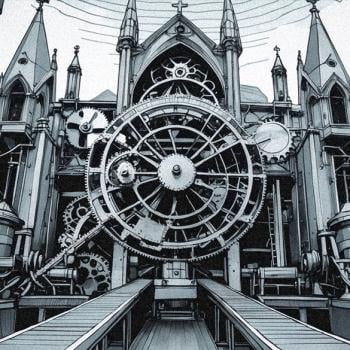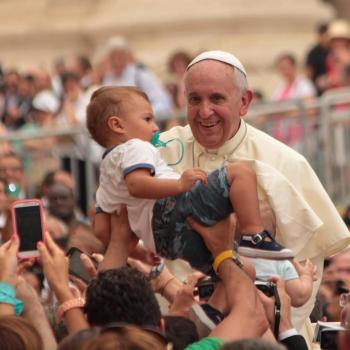Editors' Note: This article is part of the Patheos Public Square on Has Hollywood Become Our National Conscience? Read other perspectives here.
"September 11th changed everything."
When exploring the notion of Hollywood becoming our national conscience, I can't help but find my memory drawn back to that fateful fall morning some fifteen years ago. It was a phrase we first heard in the immediate aftermath of that day's horrific events, and in the years and months since it has been tossed out by both electioneering politicos and partisan pundits with such regularity and nonchalance that it has lost much of its initial meaning.
"September 11th changed everything."
And yet, in many ways, it didn't.
My personal 9/11 narrative actually began late night Saturday, September 8th, 2001. As I aimlessly channel-surfed through the hodge-podge of late night programming, I landed on 1986's The Delta Force, an assembly-line by-product of the Reagan era, starring action icon Chuck Norris, in which religiously crazed Arab terrorists hijack a plane of "Westerners." Watching, hypnotized, I couldn't help but be disgusted by the film, awash as it was with broadly-stereotypical Middle Easterners and "rah-rah" jingoism.
Cut to Tuesday morning, three days later. I turn on the television to see twin spires of steel draped in black plumes of smoke. What happened in the next few hours, days, and years is now the province of historians, but at that moment, when no one knew anything about anything, my mind couldn't help but leap back to that airing of The Delta Force, just a few days prior.
Although the scheduling had to have been entirely coincidental, it could not have been more perfectly timed to "prime the pump," as it were, by reinforcing once again the hoary old notion of the belligerent, murderous, Muslim terrorist that has become as familiar to us over the years as any other cinematic trope.
Although I have always been sensitive to the manner in which other races and cultures are portrayed in the media, I think it was the conjunction of those moments — the screening of the film, coupled mere days later with the horror unfolding before me, likened in its immediate aftermath by newscasters and average people to something out of a movie — that crystallized for me the power of the media, and specifically Hollywood, in shaping our perceptions, actions, and reactions to world events.
The role of Hollywood as an arbiter of cultural tastes and experiences can't really be understated. Certainly, as an American Muslim I can't help but be acutely aware of the role that various entertainment products — such as the aforementioned The Delta Force and stretching all the way to such recent fare as American Sniper and 13 Hours — have played and continue to play in this particular transactional equation.
Now, it's not as if the Muslim community has been the lone beneficiary of the Hollywood tendency toward reductive, simplistic portrayals. Both television and film are some of the most influential and immersive of all media, and both have the unique ability to hit the audience "where they live," influencing audiences through words and images. But let us not necessarily write off the staggering amount of power these media industries hold as something that has to be inherently negative.
After all, the same power to shape perception can, when wielded properly, also shed new light and new perspectives on communities that have traditional been either ignored or misrepresented, and in the process lend new immediacy to their stories and their concerns. To this end, I can't help but think of such productions as 2016's Straight Outta Compton, depicting the rise and dissolution of gangsta rap group N.W.A., for how it elevates this true-life tale into a modern epic.
While N.W.A. had been the focus of much angry ink and airtime during their rise in the late '80s and early '90s for the supposed destructive effect such songs as "F*** Tha Police" may have on impressionable young minds, the feature film treatment some twenty-five years after the fact is, in essence, society's way of finally giving the imprimatur of legitimacy to the group (as was the film's success at the box office, earning $201 million worldwide against a $28 million budget).
Ultimately, as the above examples show, more than simply reflecting popular trends of the moment, the film and television industries play an active part in shaping behavior. They influence how we dress, what technologies we use (and don't use), as well as how we view ourselves and others. It's not even a question of if this occurs, but how much, and in which direction.
However, despite its immense power to change the hearts and minds of huge swathes of its consumers, Hollywood is not the vague and monolithic notion that the name implies. Its product is not governed by financial needs rather than social. This is the biggest advantage to those who wish to enact change through these unique industries. There's an enormous open space for this conversation to occur, it just takes the willingness to push the ones pulling the purse strings in the direction of those stories that are in desperate need of telling.
2/17/2016 5:00:00 AM




